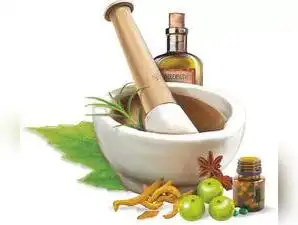Ayurveda’s FMCG share remains low despite rising household use

Ayurveda, one of the oldest systems of medicine in the world, has seen a steady rise in global popularity due to its holistic approach to health, which emphasizes a balance of body, mind, and spirit. In India, the birthplace of Ayurveda, it remains an integral part of the culture and daily life for millions. However, despite its deep cultural roots and increasing global demand for natural products, Ayurveda still makes up just over 1% of India’s overall fast-moving consumer goods (FMCG) market. This is even as leading companies have launched hundreds of natural and herbal personal care products in the last few years.
This disparity may be attributed to several factors, including the predominance of modern chemical-based products and the entrenched preferences of the majority of consumers. The FMCG market in India has historically been dominated by products containing synthetic ingredients that offer quicker results, and many consumers remain loyal to these well-established brands. The rise of global brands and the influence of modern advertising have also contributed to the slow adoption of Ayurvedic-based FMCG products in mainstream markets.
Moreover, Ayurveda, while deeply rooted in traditional knowledge, often lacks the kind of mass-market appeal and brand recognition that modern beauty and personal care products enjoy. Ayurvedic products, on the other hand, require an understanding of specific formulations, ingredients, and practices, which can be seen as a barrier for many consumers who may not be well-versed in the science behind Ayurveda.
Another challenge is the standardization of Ayurvedic products. While traditional formulations have worked well for centuries, the modern FMCG industry demands products that are consistent in quality, easy to use, and scalable. Ensuring that Ayurvedic products meet these standards without compromising their traditional efficacy is a difficult task. As a result, many Ayurvedic brands struggle with issues of quality control and production capacity, which limits their reach in the larger FMCG market.
However, the tide may be turning. As consumers increasingly seek natural, organic, and eco-friendly products, Ayurveda’s appeal is gaining traction. The rising awareness of the harmful effects of chemicals in everyday products has led to a renewed interest in Ayurvedic personal care solutions. Furthermore, the global wellness trend has spurred demand for natural alternatives to synthetic chemicals, with Ayurveda being seen as a safer, more sustainable option.
To tap into this growing demand, Ayurvedic brands are focusing on product innovation, making their offerings more accessible and attractive to the modern consumer. They are also embracing technology and digital marketing to reach a wider audience. If these trends continue, Ayurveda may soon have a much larger share of India’s FMCG market, especially as the demand for natural and organic products increases.




